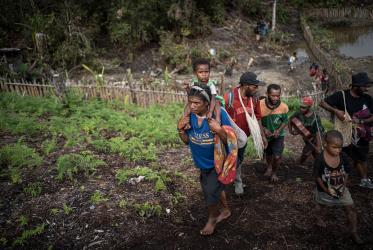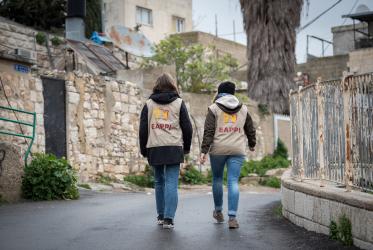60 years ago today, on 12 August 1949, the international community adopted the Geneva Conventions which aimed at limiting the devastating effects of war by protecting people not actively taking part in armed conflicts. Today, 194 countries in the world have ratified the Geneva Conventions and their Additional Protocols which still provide the most relevant framework for protecting civilians and sick, wounded or captured combatants. The overwhelming support for these measures from all countries in the world shows that the Geneva Conventions have played a significant role in war and conflicts over the past six decades.
The commemoration of the 60th anniversary of the Geneva Conventions provides an occasion to verify the extent to which their moral authority and standards are recognised and respected in contemporary situations of war and conflict. Although the Geneva Conventions make clear distinctions between civilians and combatants, civil and military targets, the complexity of today’s armed conflicts creates severe difficulties for effective implementation of International Humanitarian Law in the context of war.
Millions of people all over the world experience daily situations in which their rights to life and security are threatened. It is in this context that the international community needs to think of new ways to strengthen effective mechanisms to ensure respect for the Geneva Conventions. In this regard it is crucially important to develop ways to promote respect and improve compliance with these laws that continue to be an essential instrument in assuring the protection of human rights and the security of all people.
As the world faces an unprecedented situation of increasing violence, proliferation of non-state armed groups, and non-international armed conflicts, let us hope that effective compliance with the Geneva Conventions will remain an urgent priority for all those concerned with the plight of men and women who are striving for their existence in the midst of war and conflict.
Rev. Dr Samuel Kobia
General secretary
World Council of Churches





